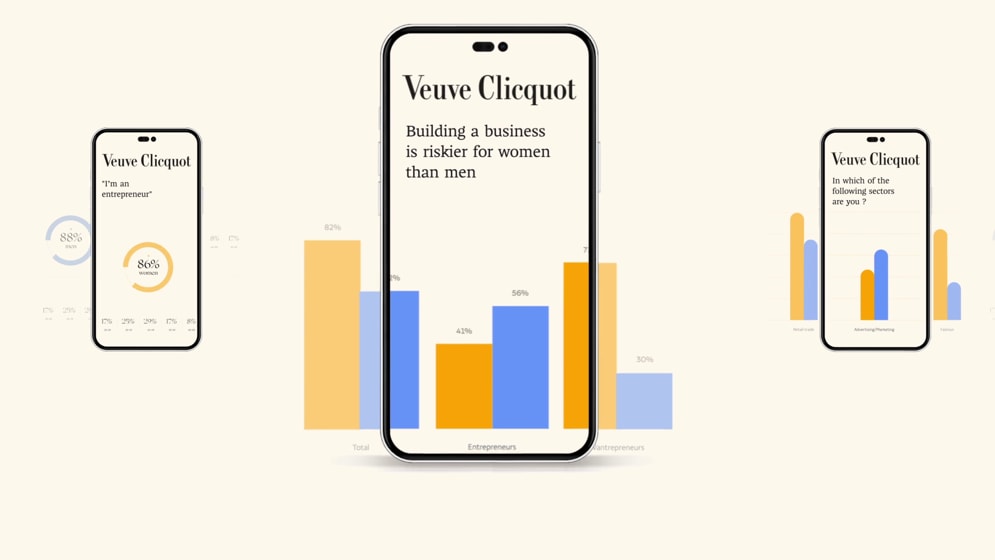
The abuse of alcohol is dangerous for your health. Drink responsibly. Veuve Clicquot supports the responsible consumption of wines and spirits, through Moët Hennessy, member of Spirits EUROPE, Discus and Wine in Moderation.

The abuse of alcohol is dangerous for your health. Drink responsibly. Veuve Clicquot supports the responsible consumption of wines and spirits, through Moët Hennessy, member of Spirits EUROPE, Discus and Wine in Moderation.
One of the ambitions behind this barometer was to observe and understand the evolution of female entrepreneurship over time. Therefore, Veuve Clicquot launched the third edition of its barometer in 2023, covering 25 countries and 49 000 respondents (representative sample) – and exploring the state of female entrepreneurship.
In a world on the move, nothing is moving for women entrepreneurs. Or at least, not fast enough…
In 2021, we witnessed a boom in female entrepreneurship. While the Covid crisis revealed a surge in resilience, two years later we're seeing a loss of momentum in entrepreneurship, and even a decline in some countries. For this 3rd edition of the Bold barometer, we asked 49,000 women and men, entrepreneurs and aspiring entrepreneurs from 25 countries to share their vision of entrepreneurship. What drives them, what worries them and what makes them react.
The survey was self-administered online:
The countries surveyed in this 2023 wave are: Australia, Belgium, Brazil, Canada, China, Côte d'Ivoire, France, Germany, Ghana, Greece, Hong Kong, Italy, Japan, Mexico, Netherlands, New Zealand, Nigeria, Singapore, South Africa, Spain, Switzerland, United Arab Emirates, United Kingdom, United States.
- The sample was obtained via an online panel of 49,367 individuals.
- Panellists received an invitation to take part in the survey by e-mail and were able to complete the survey online.
- The analysis was built up by country on a male vs. female representation of results to highlight asperities in perception.
- The analysis was also built on a global representation, aspirants and entrepreneurs, to highlight the asperities between perception and reality on the ground.
- The analysis is transversal, cross-referencing results from several countries to highlight major trends as well as inspiring divergences.
- Now incorporating decrypts from 5 continents, the results of this latest Women's Entrepreneurship Barometer tell us a great deal not only about how and why women are becoming entrepreneurs, but also about how they are meeting the geopolitical challenges of our changing world.
- The tables and countries presented in the findings have been selected to illustrate the conclusions and statements of the overall results. Full country reports are available on request.
